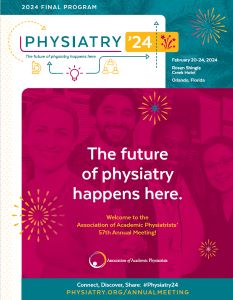Administrative / Leadership / Education
Poster Gallery
102 - Qualitative Review of Disability Supports Provided in Medical School from Faculty and Student Perspective
Thursday, February 22, 2024
5:00 PM - 6:30 PM EDT
- MA
Mary Beth Amrine, BS
Student
Boston University School of Medicine
Jamaica Plain, Massachusetts, United States
Presenting Author(s)
Objectives: The purpose of this quality improvement project was to gain a better understanding of the student and administrative perspective with the intention to improve the ease of accessibility of receiving accommodations and general disability supports during medical school.
Design: Accommodation related materials were reviewed and personal interviews (n=27) were scheduled with students with disabilities (n=13) and faculty members (n=14) involved in the accommodations process. From these interviews, common themes were established to identify target areas for improvement. The accommodations websites, processes, and Technical Standards of medical schools with a reputation for being disability aware were reviewed to guide suggested changes based on the needs assessment.
Results: Out of these interviews, three major target areas were highlighted to improve the experience of medical students requiring accommodations. Firstly, student misunderstanding contributed to mistrust of the privacy, equitability, and efficacy of the accommodations process. Secondly, student faculty relations must be rebuilt to lead to a more positive experience for students both present and future. Finally, a general culture change is needed among preclinical and clinical years to address dissatisfaction with how approved accommodations are implemented.
Conclusions: Multiple action items were developed with the goal of multi-year implementation and distribution to other medical schools looking to increase their support of students with disabilities. Extensive website edits and announcements during class year meetings and clerkship orientations were suggested to increase student understanding of how to access accommodations. Efforts to rebuild student trust of faculty and establish new disability supports included a student liaison position, faculty liaison list, Disability & Access Services office hours dedicated to the medical campus, and clerkship feedback on the implementation of accommodations. Faculty development sessions for members involved in approving and implementing accommodations, rewriting the Technical Standards, and reviewing the curriculum would aid in shifting the culture to become more disability aware.
Design: Accommodation related materials were reviewed and personal interviews (n=27) were scheduled with students with disabilities (n=13) and faculty members (n=14) involved in the accommodations process. From these interviews, common themes were established to identify target areas for improvement. The accommodations websites, processes, and Technical Standards of medical schools with a reputation for being disability aware were reviewed to guide suggested changes based on the needs assessment.
Results: Out of these interviews, three major target areas were highlighted to improve the experience of medical students requiring accommodations. Firstly, student misunderstanding contributed to mistrust of the privacy, equitability, and efficacy of the accommodations process. Secondly, student faculty relations must be rebuilt to lead to a more positive experience for students both present and future. Finally, a general culture change is needed among preclinical and clinical years to address dissatisfaction with how approved accommodations are implemented.
Conclusions: Multiple action items were developed with the goal of multi-year implementation and distribution to other medical schools looking to increase their support of students with disabilities. Extensive website edits and announcements during class year meetings and clerkship orientations were suggested to increase student understanding of how to access accommodations. Efforts to rebuild student trust of faculty and establish new disability supports included a student liaison position, faculty liaison list, Disability & Access Services office hours dedicated to the medical campus, and clerkship feedback on the implementation of accommodations. Faculty development sessions for members involved in approving and implementing accommodations, rewriting the Technical Standards, and reviewing the curriculum would aid in shifting the culture to become more disability aware.

